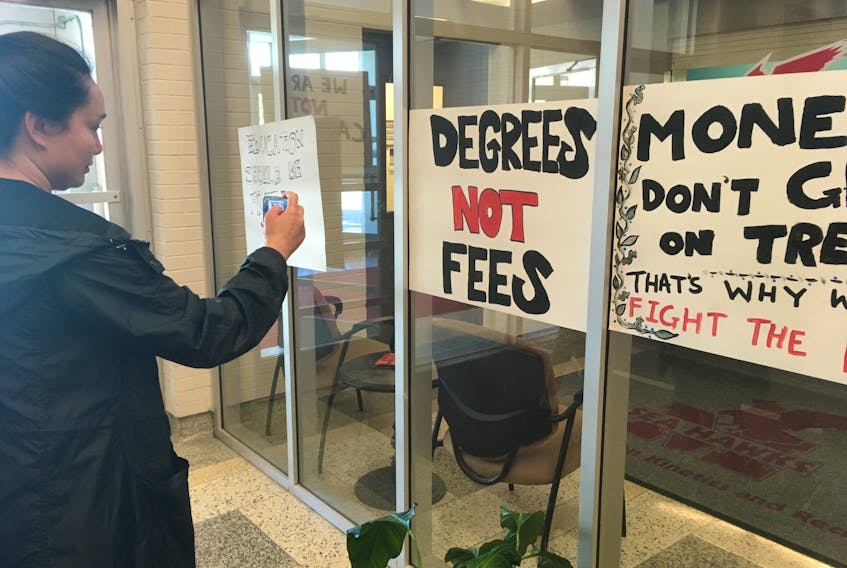It looks as though students at Memorial University of Newfoundland (MUN) will see no additional fees this fall, and no tuition increases beyond those announced in 2017.
The university is set to continue its tuition freeze for Newfoundland and Labrador students, while raising tuition for other Canadians and international students.
A vote on the budget by the Board of Regents — the final word — will come Thursday.
The greatest change expected this fall will be for new international students, with average tuition for an international undergraduate to go from about $8,800 to $11,440, according to numbers published last year.
The tuition increase will not apply to current students, but only to students starting at the university from fall onward.
Related Stories:
Memorial University looking for solutions amid financial constraints
Budget 2018: On N.L. post-secondary spending
Budget information presented to the university Senate on Tuesday shows the plan involves no new fees. All students started paying a $50 per semester student services fee in 2017, and a campus renewal fee — $50 per course for undergraduates (capped at $250 a semester) and $167 a semester for graduate students. Those fees will remain in place, as the university continues to find its way through its financial bind.
The university is facing rising costs and an infrastructure deficit, set against a backdrop of lower operating grants from the provincial government.
In the current fiscal year, while students won’t be asked to pay more, departments will see cuts reaching deeper into the academic side of operations, as MUN undertakes $5.9 million in overall spending cuts this year.
By the Senate presentation, that total factors in the new tuition revenue from Canadian and international students, and revenue from fees.
Another $3 million in reduced spending (for a total $8.9 million, by the university administration accounting) will come through attrition measures.
The university has decided on some new spending. Namely, there will be an additional $2.29 million for graduate student fellowships. Areas of unavoidable, rising costs will also be funded (the example given being elevator maintenance costs).
MUN president Gary Kachanoski had spoken with The Telegram earlier this year on the university’s budget woes. Following the Senate meeting, he said the picture changed somewhat for this fiscal year, but there are still significant items looming. If they had to be addressed in the current budget, he said, the story on tuition and fees could very well be a different one.
Specifically, Kachanoski noted collective agreements to be settled this year (he declined to comment on ongoing talks), the standing infrastructure deficit and pension liability.
“We had thought maybe the pension piece was going to come into play, but it’s not going to come into play until next year,” Kachanoski said, adding he expects an agreement might be reached in July or August, leading into further follow-up with the province after that.
“Last year when we did our three-year plan, they had committed at that point in time, in writing to us, that they would be a part of the pension solution for us. That was reversed in November this year going into these budget discussions,” he said.
Meanwhile, the university is also embarking on a re-think of its available space and infrastructure. Kachanoski says it might ultimately lead to the university being able to tear down buildings such as the existing science building — once the new science building is completed — rather than try to play catch-up on maintenance and modernization costs.
Outside of the Senate meeting, signs were posted to promote a tuition freeze for students. Student representatives participating in the regular meeting of the Senate condemned any increases in tuition or student fees.









